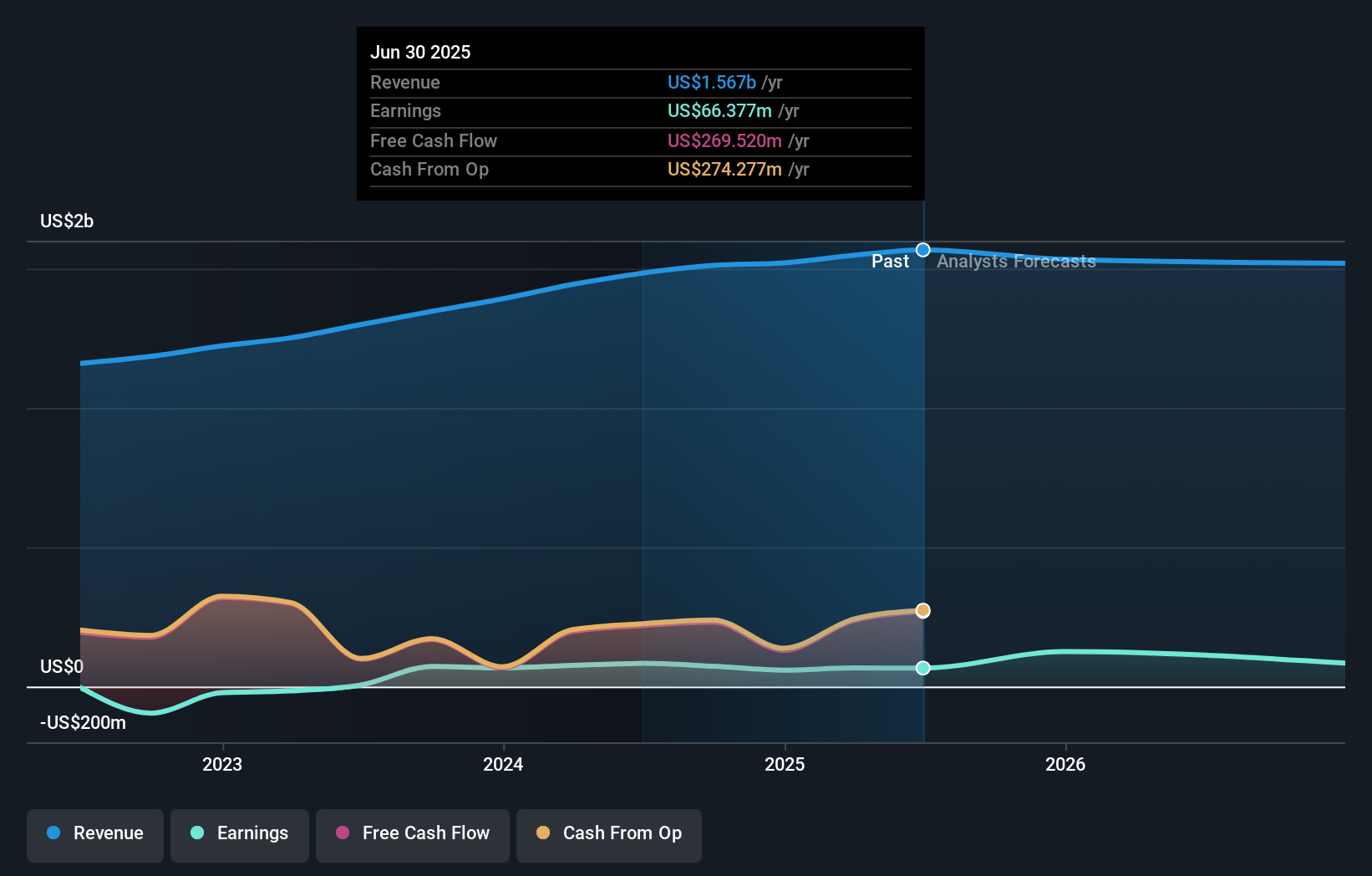Key Insights
Significantly high institutional ownership implies Universal Insurance Holdings’ stock price is sensitive to their trading actions 50% of the business is held by the top 15 shareholders Recent sales by insiders
Trump has pledged to “unleash” American oil and gas and these 15 US stocks have developments that are poised to benefit.
To get a sense of who is truly in control of Universal Insurance Holdings, Inc. (NYSE:UVE), it is important to understand the ownership structure of the business. The group holding the most number of shares in the company, around 77% to be precise, is institutions. In other words, the group stands to gain the most (or lose the most) from their investment into the company.
And things are looking up for institutional investors after the company gained US$69m in market cap last week. The gains from last week would have further boosted the one-year return to shareholders which currently stand at 74%.
Let’s delve deeper into each type of owner of Universal Insurance Holdings, beginning with the chart below.
View our latest analysis for Universal Insurance Holdings
What Does The Institutional Ownership Tell Us About Universal Insurance Holdings?
Many institutions measure their performance against an index that approximates the local market. So they usually pay more attention to companies that are included in major indices.
We can see that Universal Insurance Holdings does have institutional investors; and they hold a good portion of the company’s stock. This can indicate that the company has a certain degree of credibility in the investment community. However, it is best to be wary of relying on the supposed validation that comes with institutional investors. They too, get it wrong sometimes. If multiple institutions change their view on a stock at the same time, you could see the share price drop fast. It’s therefore worth looking at Universal Insurance Holdings’ earnings history below. Of course, the future is what really matters.

Since institutional investors own more than half the issued stock, the board will likely have to pay attention to their preferences. Universal Insurance Holdings is not owned by hedge funds. BlackRock, Inc. is currently the company’s largest shareholder with 9.4% of shares outstanding. In comparison, the second and third largest shareholders hold about 6.5% and 5.5% of the stock. In addition, we found that Stephen Donaghy, the CEO has 2.4% of the shares allocated to their name.
After doing some more digging, we found that the top 15 have the combined ownership of 50% in the company, suggesting that no single shareholder has significant control over the company.
Researching institutional ownership is a good way to gauge and filter a stock’s expected performance. The same can be achieved by studying analyst sentiments. There is a little analyst coverage of the stock, but not much. So there is room for it to gain more coverage.
Insider Ownership Of Universal Insurance Holdings
The definition of company insiders can be subjective and does vary between jurisdictions. Our data reflects individual insiders, capturing board members at the very least. The company management answer to the board and the latter should represent the interests of shareholders. Notably, sometimes top-level managers are on the board themselves.
Insider ownership is positive when it signals leadership are thinking like the true owners of the company. However, high insider ownership can also give immense power to a small group within the company. This can be negative in some circumstances.
We can report that insiders do own shares in Universal Insurance Holdings, Inc.. As individuals, the insiders collectively own US$77m worth of the US$803m company. Some would say this shows alignment of interests between shareholders and the board. But it might be worth checking if those insiders have been selling.
General Public Ownership
The general public– including retail investors — own 13% stake in the company, and hence can’t easily be ignored. This size of ownership, while considerable, may not be enough to change company policy if the decision is not in sync with other large shareholders.
Next Steps:
It’s always worth thinking about the different groups who own shares in a company. But to understand Universal Insurance Holdings better, we need to consider many other factors. For instance, we’ve identified 1 warning sign for Universal Insurance Holdings that you should be aware of.
If you would prefer discover what analysts are predicting in terms of future growth, do not miss this free report on analyst forecasts.
NB: Figures in this article are calculated using data from the last twelve months, which refer to the 12-month period ending on the last date of the month the financial statement is dated. This may not be consistent with full year annual report figures.
New: AI Stock Screener & Alerts
Our new AI Stock Screener scans the market every day to uncover opportunities.
• Dividend Powerhouses (3%+ Yield)
• Undervalued Small Caps with Insider Buying
• High growth Tech and AI Companies
Or build your own from over 50 metrics.
Explore Now for Free
Have feedback on this article? Concerned about the content? Get in touch with us directly. Alternatively, email editorial-team (at) simplywallst.com.
This article by Simply Wall St is general in nature. We provide commentary based on historical data and analyst forecasts only using an unbiased methodology and our articles are not intended to be financial advice. It does not constitute a recommendation to buy or sell any stock, and does not take account of your objectives, or your financial situation. We aim to bring you long-term focused analysis driven by fundamental data. Note that our analysis may not factor in the latest price-sensitive company announcements or qualitative material. Simply Wall St has no position in any stocks mentioned.


